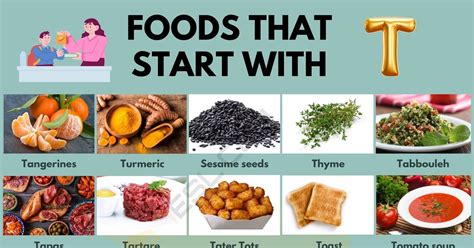Natural male T-boost: diet & lifestyle for peak vitality & performance?

Unlocking Male Vitality: The Natural Path to Optimized Testosterone
Testosterone, often hailed as the cornerstone of male health, plays a pivotal role far beyond just libido and muscle mass. It influences mood, energy levels, bone density, cognitive function, and even cardiovascular health. While testosterone levels naturally decline with age, modern lifestyle factors can accelerate this process, leading to symptoms like fatigue, low mood, decreased strength, and reduced drive. The good news? You don’t always need synthetic solutions. Many men can significantly boost their testosterone naturally through a combination of smart dietary choices and strategic lifestyle adjustments.
Understanding the Importance of Healthy Testosterone Levels
Optimal testosterone levels are crucial for maintaining peak male vitality and performance. When T levels are balanced, men often experience improved energy, better mood regulation, enhanced muscle strength and recovery, and a healthy sex drive. Conversely, sub-optimal levels can manifest as chronic fatigue, irritability, difficulty building muscle, increased body fat, and a general decline in well-being. Focusing on natural methods empowers the body’s own endocrine system to function more effectively.

Dietary Cornerstones for Testosterone Optimization
What you eat forms the foundation of your hormonal health. A diet rich in specific nutrients can actively support testosterone production while minimizing factors that hinder it.
1. Prioritize Healthy Fats
Cholesterol is a precursor to testosterone, and healthy fats are essential. Incorporate monounsaturated fats (avocados, olive oil, nuts) and polyunsaturated fats (fatty fish like salmon, flaxseeds) into your diet. Avoid trans fats, which can negatively impact hormonal balance.
2. Load Up on Zinc and Vitamin D
Zinc is a critical mineral for testosterone production and deficiency is common. Excellent sources include oysters, red meat, poultry, beans, nuts, and pumpkin seeds. Vitamin D, often considered a hormone itself, is strongly linked to testosterone levels. Aim for sun exposure and incorporate foods like fatty fish, fortified milk, and egg yolks. A supplement may be beneficial, especially in regions with limited sunlight.
3. Magnesium-Rich Foods
Magnesium has been shown to increase free and total testosterone levels, particularly when combined with exercise. Rich sources include leafy green vegetables (spinach, kale), nuts (almonds, cashews), seeds (chia, flax), legumes, and whole grains.
4. Cruciferous Vegetables
Vegetables like broccoli, cauliflower, Brussels sprouts, and cabbage contain indole-3-carbinol, a compound that helps the body metabolize estrogen more effectively. By reducing excess estrogen, these vegetables can indirectly support higher testosterone levels.

5. Limit Processed Foods, Sugar & Excessive Alcohol
These can contribute to inflammation, insulin resistance, and weight gain – all factors that can negatively impact testosterone production. Excessive alcohol consumption is particularly detrimental to Leydig cells in the testes, which are responsible for testosterone synthesis.
Lifestyle Pillars for Elevated Testosterone
Beyond diet, your daily habits significantly influence your hormonal landscape.
1. Engage in Strength Training & HIIT
Resistance training, particularly compound movements like squats, deadlifts, and bench presses, has been shown to acutely and chronically increase testosterone. High-Intensity Interval Training (HIIT) also provides a potent stimulus for T production. Aim for 3-4 sessions per week.

2. Prioritize Quality Sleep
Most of your body’s testosterone is produced during sleep. Chronic sleep deprivation (less than 7-9 hours) can drastically reduce T levels. Create a consistent sleep schedule, optimize your bedroom environment for darkness and coolness, and limit screen time before bed.

3. Manage Stress Effectively
Chronic stress elevates cortisol, the body’s primary stress hormone. High cortisol levels can suppress testosterone production. Incorporate stress-reduction techniques such as meditation, deep breathing exercises, yoga, spending time in nature, or engaging in hobbies.
4. Maintain a Healthy Body Weight
Excess body fat, particularly around the abdomen, can lead to increased aromatase activity, an enzyme that converts testosterone into estrogen. Losing weight, especially if overweight or obese, is one of the most effective ways to boost testosterone naturally.
5. Reduce Exposure to Endocrine Disruptors
Certain chemicals found in plastics (BPA, phthalates), pesticides, and personal care products can mimic hormones and interfere with your body’s natural testosterone production. Choose glass containers, organic produce, and natural personal care items where possible.
The Holistic Approach to Peak Vitality
Achieving optimal testosterone levels and overall peak vitality isn’t about quick fixes; it’s about adopting a sustainable, holistic approach. Consistency in your dietary choices, exercise routine, sleep habits, and stress management will yield the most profound and lasting results. It’s a journey towards a more energetic, focused, and healthier you.

Conclusion
Embracing a lifestyle centered around nutrient-dense foods, regular strength training, adequate sleep, and effective stress management offers a powerful, natural pathway to boost testosterone. These natural strategies not only support healthy hormone levels but also contribute to a significant improvement in overall male vitality, physical performance, and mental well-being. By taking control of these fundamental aspects of your life, you can unlock your body’s potential for peak performance and enjoy a more vibrant, energetic existence.









